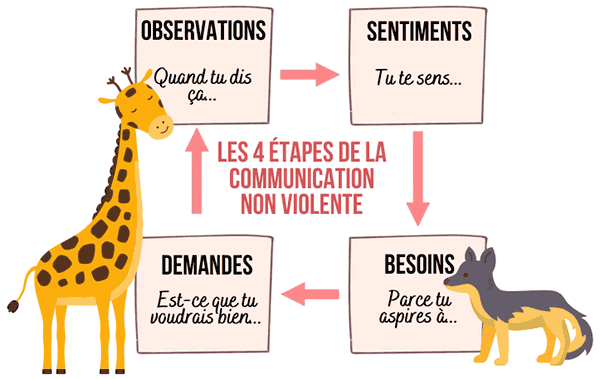Stress hormones are very harmful to our body and, in the long term, can promote the development of tumors. Renowned oncologist David Khayat has spoken about this many times in the media.

Stress is the enemy of the century. It promotes fat storage and weight gain, increases the risk of developing cardiovascular disease but also of contracting cancer, according to many doctors. This is notably the theory of Professor David Khayatfamous oncologist who spoke on the subject on Sunday 1erDecember in regional newspaper columns South West. “Stress hormones reduce the efficiency of our telomeres, located at the end of our chromosomes and whose function is to monitor and repair DNA mutations,” he says.
The specialist speaks regularly on the subject in the media. He even published a book on the subject in September 2018, titled The truth investigation. You will never be afraid of cancer again. “Everyone has the intuition that something quite serious happened in life, like the loss of a loved one and two or three years later, cancer occurred. The idea of this book is to demonstrate it”, he explains to promote his book in an interview. at France 24.
“As for grief, it happens when you can’t share it anymore, because you’re alone and that sadness turns into despair. At that point, the body can no longer do it and mechanisms occur that will lower our immune defenses. We know that when we are very tired, we tend to catch a cold sore or the flu. It’s the same principle for cancer. In our body, there are small cancers almost all the time. A human body is an incredible machine, made up of billions of cells. Every day we produce 70 million, it is impossible that one day we have not made one that is cancerous and starts to proliferate. But the immune system prevents it from becoming a danger to us. And at some point, this immune system which defends us with antibodies lowers its power and the cancer has a field day”, develops the specialist.
Stressed mice, larger tumors
A few months ago, researchers discovered how chronic stress could promote the development of breast cancer stem cells. In their study, they induced chronic stress in mice by placing them for a week in small enclosures that restricted their movements.
They were then inoculated with breast cancer cells. The mice were then divided into two groups: a control group and a group of stressed mice locked in small cages for an additional month. The scientists then found that mice suffering from chronic stress had larger and faster growing tumors than those in the control group.
“You can kill all the cells you want in a tumor, but if the stem cells, or parent cells, aren’t killed, then the tumor will grow and metastasize. This is one of the first studies to establish a definite link between chronic stress and the growth of breast cancer stem cells,” says Keith Kelley, a professor in the Department of Animal Science and College of Medicine at the University of Illinois (USA), co-author of the study.
Epinephrine in play
After demonstrating the link between chronic stress, mood swings and increased growth of breast cancer stem cells, scientists turned their attention to the underlying biochemical foundations that cause stress and increase the growth of cancer cells.
They thus noticed that the levels of epinephrine (one of the main stress hormones) were higher in mice subjected to stress throughout the duration of the experiment and than in those who received treatment to inactivate the ADRB2 receptor. of the hormone, the tumors were much smaller and had fewer stem cells.
“These data provide a new pathway that explains how elevated epinephrine caused by chronic stress promotes breast cancer progression by acting directly on cancer stem cells,” says Quentin Liu, of the Cancer Institute of Dalian Medical University, China, and co-author of the article.
Breathe, meditate, walk in nature…
Thus, stress would therefore be a risk factor for cancer. And if it does not play as important a role as tobacco or junk food in the development of tumours, it is, like cigarettes or a poor diet, our responsibility. Which means we can have an impact on it.
“We cannot avoid stress and sadness, the end of life is a reality that we all face. On the other hand, we can, at the time of sadness, try to discuss finding friends or psychologists”, assures David Khayat who delivers a whole series of techniques to establish to better manage his stress.
“Square breathing, closely linked to Buddhism and yoga is, for example, very useful: inhale for five seconds, stop breathing for five seconds, exhale for five seconds and stop breathing for five seconds again. Concentrating on something as simple and primitive as breathing helps release stress,” he explains.
Other advice to reduce anxiety: meditate or walk in the forest because “we now know that trees communicate with us”. It has indeed been proven time and time again that contact with nature relaxes human beings. According to a study published in April in the journal Frontiers in Psychology, walking about twenty minutes in a park, or a natural environment in town, accessible and free, is enough to reduce the cortisol level of urban dwellers. Up to 30 minutes, the latter is reduced even more and beyond half an hour, the decline continues but at a slower rate. You know what you have to do…

.















